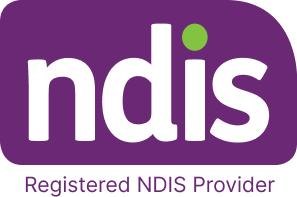Federal Budget 2022-23: Disability Funding Analysis
This article was published by the NDS (National Disability Services). We are only sharing this with our community members to give them an update about the recent changes in NDIS.
29/03/2022
The Federal Budget’s most important announcement for people with significant disability and their families and carers is the increased funding for the NDIS across the forward estimates.
The amounts announced are close to the ‘plausible high case’ figures contained within the recent Taylor Fry report, ‘Review of NDIA actuarial forecast model and drivers of Scheme costs’ (and well above the forward estimates in last year’s Budget papers). This is important to see.
From next year and across the forward estimates, the expenditure on the NDIS will be larger than what the government spends on Medical Benefits (in 2022-23 the expenditure on the NDIS is projected to be $35.7 billion, $5 billion more than Medicare). By the final year of the estimates (2025-26) the spending on the NDIS is expected to have increased to $46 billion.
A measure to increase the number of NDIS participants in Queensland, first reported in 2019-20 MYEFO, has its final injection of funding ($7.6 million) in 2022.
While the expenditure on the NDIA to administer the scheme is static for the coming year, it is forecast to drop by more than 20 percent in 2023-24. The staffing allocations for both the NDIA and the NDIS Commission will be static over the coming year.
The remainder of the Budget is relatively light for disability.
Almost $11 million will be provided to the Cross-Agency Taskforce on Regulatory Alignment over the coming year. These funds will continue the work to align the regulation of the disability, aged care and veterans’ care sectors. While the aged care sector will benefit from an injection of almost $50 million to subsidise 15,000 vocational education and training places for those who are already in or are looking to enter the aged care workforce, it is disappointing this does not extend to the disability sector.
Other initiatives to support the development of the care and support workforce are:
- 5,250 more clinical placements in aged, disability and veterans’ care
- 15,000 more JobTrainer places
- more opportunities for clinical placements in aged care in rural and remote communities
- more opportunities for Aboriginal and Torres Strait Islander people to train for care and support jobs
- more opportunities for mental health student placements in allied health, nursing, psychology and psychiatry
- coordinated action with a new National Care and Support Workforce Strategy
NDS will seek more information about these initiatives and will let members know when it is available.
Interestingly, $6.9 million will be provided to the Business Council of Co-operatives and Mutuals over three years from 2022-2023 to support co-operatives and other collaborative business models to access the aged, disability and veterans’ care sectors. The Business Council will support their start-up and development.
NDS recently informed members of the results of a survey of the additional costs being experienced during the COVID-19 pandemic. It is disappointing, therefore, that the procurement and distribution of Rapid Antigen Tests (RATs) to NDIS Supported Independent Living (SIL) residents and workers is only funded until the end of June 2022. The additional costs of working in the pandemic will remain well after that time and extend well beyond the costs of RATs and well beyond SIL. A supplementary payment is urgently needed.
Funding of $1.2 million will be provided over the coming year to support Amaze and Autism Awareness Australia to expand the ‘Autism: What Next?’ website to help individuals and families in the year following an autism diagnosis.
Providers of Disability Employment Services (DES) are wanting information about reforms to the program. This Budget does not enlighten us; no information is provided about the proposed changes to the Disability Employment Services program. Initiatives specific to disability employment include:
- $44.6 million over two years from 2022-23 to continue support for businesses that employ mature-aged DES program participants through the Restart Wage Subsidy
- $6.1 million over two years from 2022-23 for an advertising program to promote the Field (formerly known as WorkAble) to assist job seekers with disability to find, and engage with employment opportunities
People receiving the Disability Support Pension, Carer Payment and Carer Allowance (where they are not in receipt of a primary income support) will receive a payment of $250 before the end of June to help with the increased costs of living.
A substantial injection of funding ($1.3 billion over six years from 2021-22) will be directed towards initiatives to reduce all forms of family, domestic and sexual violence against women. These are welcome and includes funding of $104.4 million from 2022-23 to expand the role of Our Watch, to improve its reach in diverse communities, including the disability community.

